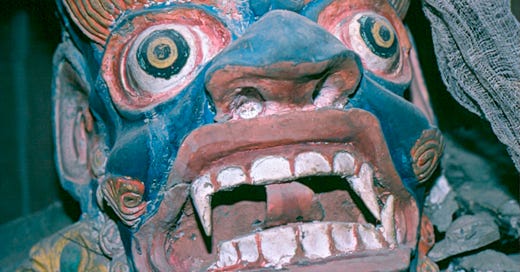“We are Alamein,” said one rather plump granny with a kindly face. “I am Alamein the First and my sister here is Alamein the Second.” She indicated an identical plump granny with an identical kindly face.
“The Battle of El-Alamein,” I said rather stupidly.
“Sure. I was born first and was named after the First Battle of Alamein. Sis here, she was born a fe…
Keep reading with a 7-day free trial
Subscribe to A Lazy Marco Polo to keep reading this post and get 7 days of free access to the full post archives.




